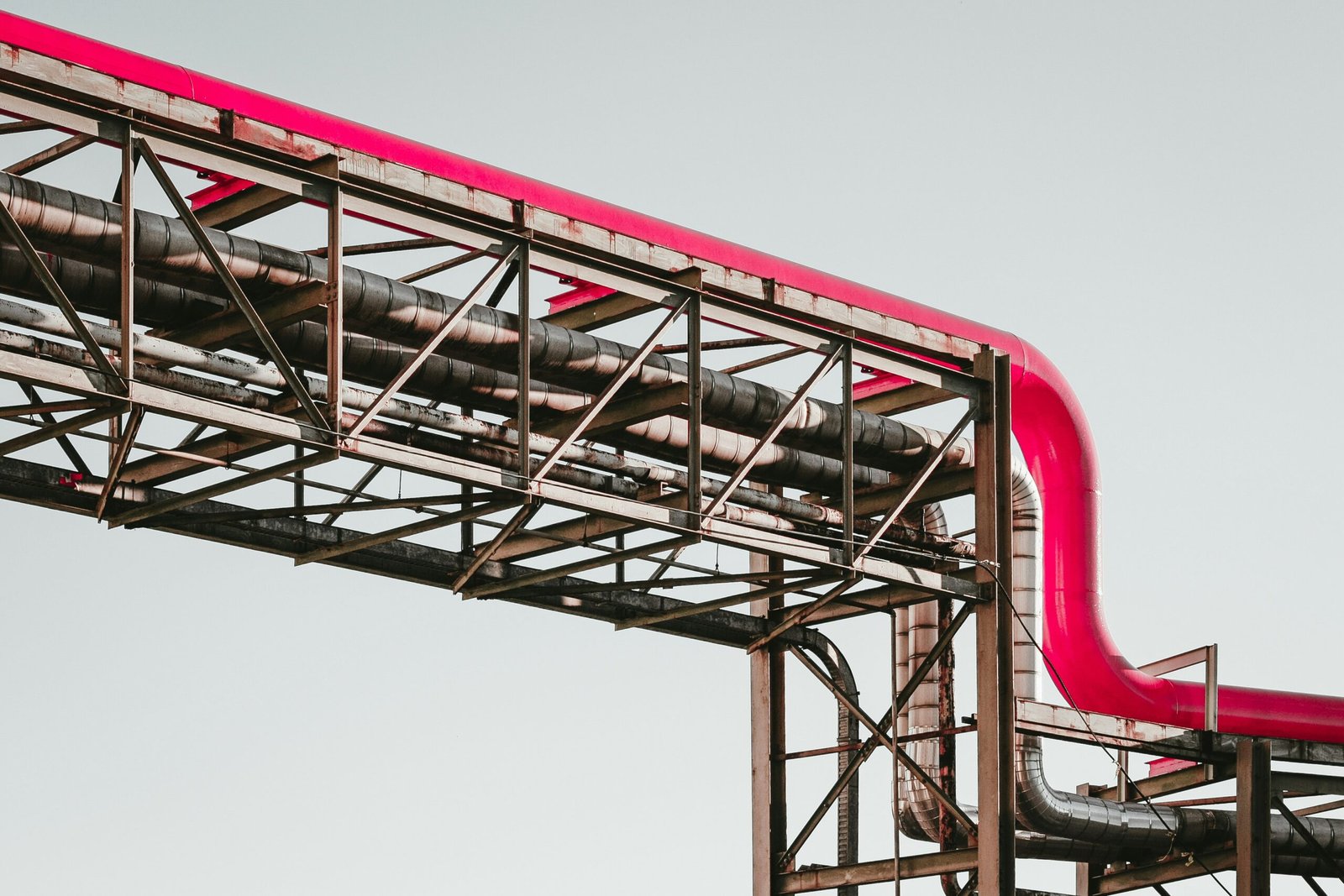Introduction to Gas Engineering
Gas engineering is a specialized field focusing on the safe and efficient extraction, distribution, and utilization of gaseous fuels. A gas engineer, also known as a gas technician, plays a crucial role in ensuring that gas systems are installed, maintained, and operated to adhere to stringent safety and performance standards. Their primary responsibilities encompass the design, installation, servicing, and repair of gas systems that deliver energy for heating, cooking, and industrial processes.
Gas engineers work with a variety of gaseous fuels including natural gas, propane, and butane, each having specific applications and safety considerations. Natural gas, predominantly methane, is widely used in urban and residential settings for purposes such as heating, hot water, and cooking. Propane, a by-product of natural gas and petroleum refining, serves as a popular fuel for rural areas where natural gas supply infrastructure may be limited. Additionally, propane is crucial in industrial applications like forklifts, and butane is often utilized in lighters and portable stoves.
The scope of gas engineering spans across various environments. In residential settings, gas engineers ensure the safe operation of central heating systems, cookers, and gas-powered water heaters, providing comfort and efficiency in homes. In commercial contexts, their expertise extends to more complex systems such as boilers and catering equipment in restaurants, ensuring continuous, safe operation. Industrial facilities rely heavily on gas engineers to maintain large-scale heating systems, gas turbines, and process plants, contributing to the uninterrupted functioning of essential production processes.
Given the hazardous nature of gaseous fuels, gas engineers must possess a deep understanding of safety regulations and best practices. This includes knowledge of the applicable codes and standards, the ability to perform thorough inspections, and the skills to detect and mitigate potential hazards. By combining technical expertise with a commitment to safety, gas engineers play an indispensable role in safeguarding the well-being of individuals and the integrity of infrastructures utilizing gas energy.
Training and Qualifications Required
The path to becoming a gas engineer entails a combination of formal education, vocational training, and professional certifications, all designed to equip individuals with the requisite skills and knowledge. Initially, aspiring gas engineers can opt for relevant degrees or apprenticeship programs. Degree courses in subjects like mechanical engineering, building services engineering, or gas engineering technology provide foundational knowledge. Meanwhile, apprenticeship programs offer hands-on experience, blending practical training with theoretical education.
A critical step for any gas engineer in the UK is acquiring Gas Safe registration. This certification is vital because it ensures that the engineer is legally allowed to work with gas appliances and systems. The Gas Safe register is an official list of engineers legally qualified to work on gas. Achieving this status involves rigorous assessments and practical evaluations to confirm the engineer’s proficiency in handling gas-related tasks safely and effectively.
Beyond initial qualifications, the dynamic nature of the industry necessitates continuous professional development. Ongoing training is crucial for gas engineers to stay abreast of the latest technologies, industry standards, and safety regulations. Regular updates and refresher courses are essential in maintaining high safety and service standards, given the evolving nature of gas engineering and related safety protocols.
In addition to formal qualifications and ongoing training, professional certifications play a significant role. These may include specialized courses in areas such as energy efficiency, gas utilization, and advanced gas systems. Such credentials not only enhance an engineer’s expertise but also their employability and career advancement prospects.
In summary, the journey to becoming a competent gas engineer is multifaceted, requiring a blend of formal education, practical training, and continuous professional development. These elements collectively ensure that gas engineers can provide safe, efficient, and reliable services, adhering to industry standards and regulatory requirements.
Day-to-Day Duties and Responsibilities
The daily responsibilities of a gas engineer are multifaceted, encompassing a combination of both technical and regulatory tasks. A significant portion of a gas engineer’s day is dedicated to the installation, maintenance, and repair of gas systems and appliances. These systems can range from residential heating systems to complex industrial gas installations. Ensuring the correct and efficient functioning of these systems demands a high level of technical expertise and precision.
Installing new gas appliances often involves direct interaction with clients to understand their needs, followed by precise installation to manufacturer specifications. Maintenance tasks, on the other hand, are scheduled and preventative, such as routine inspections and servicing to ensure continuous, safe operation. These procedures are vital in extending the lifecycle of the equipment and minimizing the risk of unexpected failures.
Another critical responsibility of a gas engineer is conducting safety checks. Regular safety assessments are paramount to detect potential issues before they become critical. This involves checking for leaks, corrosion, and ensuring that all components are functioning correctly. If any issues are identified, the engineer must promptly troubleshoot and repair these to prevent hazardous situations. For instance, discovering a small leak in a residential gas line and repairing it promptly can prevent potential accidents and ensure the safety of the occupants.
Moreover, gas engineers are responsible for ensuring compliance with industry regulations and standards. Regulatory tasks include up-to-date certifications, adhering to health and safety guidelines, and maintaining meticulous records of all completed work. This compliance is not only a legal requirement but also essential in maintaining trust and credibility within the community.
Real-world scenarios, such as responding to emergency calls for gas leaks or diagnosing complex system failures, illustrate the versatility and responsiveness required in this profession. Each day brings a unique set of challenges, underscoring the importance of expertise, vigilance, and a commitment to safety in the role of a gas engineer.
Safety Protocols and Regulations
The critical importance of safety in gas engineering cannot be overstated. Gas engineers are responsible for ensuring the safe operation and maintenance of gas systems, which, if mishandled, can pose significant risks to both people and the environment. Adhering to stringent safety protocols is essential to mitigate these risks effectively.
One key aspect of safety in gas engineering is the execution of regular inspections. These inspections are crucial for identifying potential issues before they escalate into hazardous situations. Gas engineers routinely check gas appliances, pipelines, and installations to ensure they are functioning correctly and are free from defects. Early detection and repair of faults can prevent leaks, explosions, and other dangerous occurrences.
Proper handling of gas appliances is another vital component of safety protocols. Gas engineers must be trained in the correct methods of installing, servicing, and decommissioning gas systems. This includes following manufacturers’ guidelines and adhering to industry best practices to ensure that gas appliances operate safely and efficiently. Properly maintained equipment not only enhances performance but also minimizes the risk of accidents.
Emergency procedures are equally critical in ensuring safety. Gas engineers must be prepared to respond swiftly and effectively to emergencies, such as gas leaks or system failures. This preparation involves regular drills, having access to necessary safety equipment, and clear communication with relevant emergency services. Well-defined emergency protocols can significantly reduce the impact of potential incidents.
The regulatory framework governing gas engineering plays a pivotal role in maintaining high safety standards. Regulatory bodies, such as the Health and Safety Executive (HSE) in the United Kingdom, establish and enforce standards to protect public and environmental health. These bodies mandate compliance with regulations such as the Gas Safety (Installation and Use) Regulations, which outline specific requirements for safe gas work. Adherence to these regulations helps ensure that gas engineers perform their duties with the utmost regard for safety.
Tools and Equipment Used
Gas engineers are equipped with a variety of tools and specialized equipment that are essential for the safe and effective execution of their duties. These tools not only aid in the precise installation and maintenance of gas systems but also ensure compliance with safety regulations and standards.
One of the most crucial tools in a gas engineer’s toolkit is the gas detector. This device is imperative for identifying and measuring the presence of various gases, such as methane or carbon monoxide, in the environment. Gas detectors provide early warnings of potential leaks, helping prevent hazardous situations. Engineers rely on these detectors during both routine inspections and emergency responses to ensure the safety of premises and personnel.
Pressure gauges are another vital instrument. They measure the pressure within gas systems, ensuring that the pressure levels are within safe operating parameters. Accurate pressure regulation is fundamental in maintaining system integrity and preventing leaks or ruptures. Through regular monitoring with pressure gauges, gas engineers can diagnose issues and perform necessary adjustments or repairs.
Wrench sets, specifically designed for gas fittings, are employed to tighten and loosen connections within the gas pipeline network. These wrenches are engineered to ensure a proper fit and to avoid damaging sensitive components. The use of appropriate wrenches is crucial as improper handling can lead to leaks or breakages, compromising the system’s safety and efficiency.
Specialized tools such as pipe cutters, flaring tools, and thread sealants are also part of a gas engineer’s arsenal. Pipe cutters allow for precise cutting of gas pipes, ensuring clean edges necessary for a secure fit. Flaring tools are used to create flares on the ends of pipes, facilitating strong connections. Thread sealants are applied to threaded connections to create airtight seals, preventing gas escape.
By leveraging these tools and equipment, gas engineers can conduct thorough inspections, installations, and repairs, thereby maintaining the safety and efficiency of gas systems. Each tool plays a specific role, contributing collectively to the overall effectiveness of a gas engineer’s responsibilities.
Challenges Faced by Gas Engineers
The role of a gas engineer is intricate and fraught with numerous challenges. One of the primary concerns is working with hazardous materials. Gas engineers often deal with combustible gases, which requires meticulous handling to prevent leaks, explosions, and other potentially catastrophic incidents. Ensuring that safety measures are consistently followed is paramount, demanding rigorous attention to detail and adherence to safety protocols.
Another significant challenge lies in managing complex systems. Modern heating and gas systems are sophisticated, incorporating advanced technologies that necessitate a deep understanding of the mechanics and electronics involved. Gas engineers must continually update their knowledge and skills to keep pace with industry advancements and evolving technologies. This ongoing education is crucial to both personal safety and effective problem-solving.
Navigating regulatory requirements adds another layer of complexity to the gas engineer’s responsibilities. The industry is heavily regulated to ensure public safety and environmental protection. Compliance with local, national, and international standards involves substantial paperwork and understanding of ever-changing laws and guidelines. Gas engineers must be proactive in staying informed about regulatory changes and ensuring their work consistently meets these stringent requirements.
Finally, managing customer expectations presents its own set of challenges. Clients often have diverse and sometimes unrealistic expectations regarding timelines, costs, and outcomes. Effective communication is essential to align customer understanding with project realities. Establishing clear, transparent lines of communication helps in managing expectations and ensuring customer satisfaction.
To overcome these challenges, gas engineers can adopt several strategies and best practices. Continuous professional development is crucial; staying abreast of industry trends, new technologies, and regulatory changes allows engineers to remain proficient. Utilizing advanced tools and software can enhance accuracy and efficiency, reducing the risk of errors. Moreover, fostering a strong safety culture within teams and emphasizing the importance of communication can significantly mitigate potential issues. By implementing these strategies, gas engineers can navigate their complex roles more effectively, ensuring both safety and excellence in their work.
The Future of Gas Engineering
Gas engineering is on the cusp of transformative changes, driven by rapid advancements in technology, a growing emphasis on sustainability, and evolving environmental policies. As the energy market undergoes significant shifts, the role of the gas engineer is poised for considerable evolution.
One of the most notable future trends in gas engineering is the integration of smart home technologies. Modern homes are increasingly utilizing smart thermostats, gas leak detectors, and automated control systems that can optimize energy consumption. Gas engineers are now required to understand digital systems and IoT (Internet of Things) devices, ensuring these smart technologies are correctly integrated and maintained. This shift not only enhances efficiency but also significantly improves user convenience and safety.
Environmental sustainability is a major driving force in the evolution of gas engineering. There is an accelerated exploration into alternative and sustainable gas sources, such as biogas and hydrogen. Biogas, produced from organic waste, and hydrogen, which emits only water when burned, represent cleaner options that can significantly reduce carbon footprints. Engineers in the gas industry are tasked with innovating new methods of production, storage, and distribution for these sustainable gas sources, requiring a solid understanding of both current technologies and emerging trends.
Improvements in safety equipment are another critical facet shaping the future of gas engineering. With enhanced sensor technology and advanced materials, the development of safer and more reliable gas systems is possible. Engineers are now focusing on predictive maintenance and real-time monitoring solutions that can preemptively address potential issues, thereby minimizing risks and ensuring smoother operations.
Finally, evolving environmental policies continue to exert a substantial impact. As governments worldwide implement stricter regulations to mitigate climate change, gas engineers must adapt to comply with new laws and standards. These policies not only influence the types of gases used but also dictate the engineering practices and technologies employed within the industry.
The future of gas engineering holds a wealth of opportunities and challenges, demanding that professionals in the field stay abreast of technological advances, sustainability efforts, safety enhancements, and regulatory changes. In doing so, gas engineers will play a pivotal role in shaping an energy-efficient, environmentally friendly, and technologically advanced future.
Career Opportunities and Advancement
The career opportunities for a gas engineer are diverse and promising, with multiple paths to specialization, leadership, and entrepreneurship. For those entering the field, it’s essential to understand the breadth of possibilities and the steps necessary for progression. The demand for gas engineers spans various sectors, reflecting the versatility and necessity of the profession.
A primary career progression for a gas engineer involves specializing in a specific type of gas system, such as residential, commercial, or industrial installations. By focusing on a particular area, engineers can develop expertise and become invaluable assets to employers or clients. Specialization often leads to increased job satisfaction and higher earning potential, as well as opportunities for advanced certifications and training.
Another significant avenue for career advancement is moving into management roles. Experienced gas engineers with strong leadership and organizational skills can transition into supervisory or management positions within their companies. These roles often involve overseeing projects, coordinating teams, and ensuring compliance with safety regulations and standards. Managers play a crucial role in strategic planning and operational efficiency, impacting the overall success of their organizations.
For those with an entrepreneurial spirit, starting a gas engineering business is another viable option. With the right blend of technical knowledge, business acumen, and networking skills, gas engineers can establish their own companies, offering services that range from installation and maintenance to consultancy and training. Operating an independent business allows engineers to set their schedules, choose projects that align with their interests, and significantly influence their income potential.
The demand for gas engineers is robust across various sectors, including construction, utilities, and manufacturing. As energy consumption patterns evolve and new technologies emerge, the need for skilled professionals in gas systems continues to grow. This demand is further driven by the ongoing emphasis on energy efficiency and environmental sustainability, both vital factors in today’s industrial landscape.
Overall, the gas engineering profession offers numerous opportunities for career advancement. By pursuing specialization, management roles, or entrepreneurship, and capitalizing on the steady demand within multiple sectors, gas engineers can enjoy a rewarding and dynamic career.





















+ There are no comments
Add yours